 |
| |
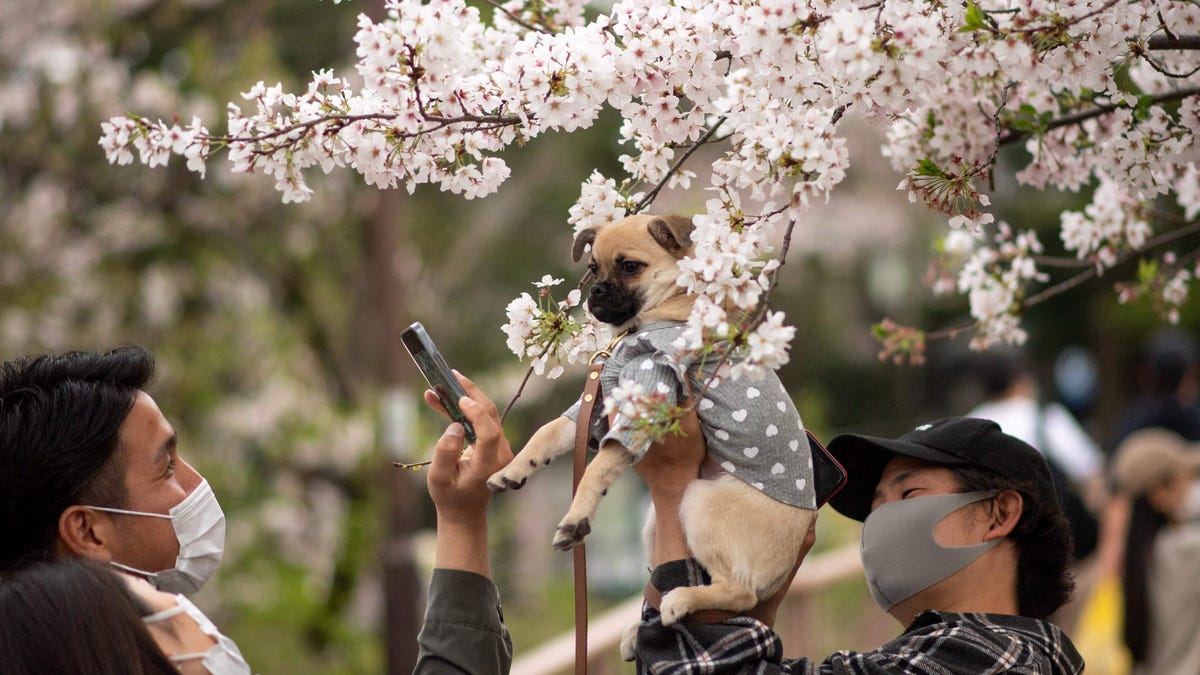 | | | Life is short | | Life expectancy decreased during the pandemic. And cloudy skies were seen all across the country from wildfires in the West. It's Wednesday's news. | | |
| |
| |
| |
| |
| Life expectancy decreased during the pandemic – by quite a bit. Thick smoke from Western wildfires is clouding skies thousands of miles away. And the U.S. has extended border restrictions for another month. |
| 👋 Hey, hey! Laura here, with Wednesday's news, just for you. |
| But first, bear with me. 🐻 Just hours before the first pitch in an Olympic softball game between Japan and Australia, a brown bear was spotted near the stadium. They're looking for it. |
| The Short List is a snappy USA TODAY news roundup. Subscribe to the newsletter here or text messages here. |
Pandemic cut years off our lives |
| Life is short – and it's getting shorter. The United States saw the largest one-year drop in life expectancy since World War II during the COVID-19 pandemic, and Hispanic and Black populations saw the largest declines, according to government data released Wednesday. Life expectancy at birth declined by 1.5 years in 2020 to 77.3 – the lowest level since 2003, the CDC's National Center for Health Statistics found. "I really hope that this is a wake-up call for the U.S.," said Jennifer Karas Montez, a professor of sociology. "We're relying a lot on a medical fix – on vaccines. And I don't think that's enough." Between 1942 and 1943, during World War II, life expectancy in the U.S. declined 2.9 years. COVID-19 deaths contributed to about 74% of the decline in life expectancy among the general U.S. population, according to the data. Another 11% of the decline can be attributed to increases in deaths from accidents or unintentional injuries, including drug overdose deaths. |
| |
A lopsided loss |
| Supporters like you make this reporting possible. Here's how to subscribe. |
| Instead of getting revenge for their ouster at the Rio Olympics, the U.S. women's soccer team got embarrassed. "We got our asses kicked, didn't we?" Megan Rapinoe said. Yes. The reigning World Cup champions were completely outclassed by old foe Sweden in their opener at the Tokyo Olympics on Wednesday in a 3-0 loss, the U.S. women's worst showing at a major international tournament since a 4-0 loss to Brazil at the 2007 World Cup. It also was the squad's first loss since January 2019, snapping a 44-game unbeaten streak. |
| 👉 Text with us at the Tokyo Olympics! Subscribe to texts, where we'll be your official guide to the Games. |
| |
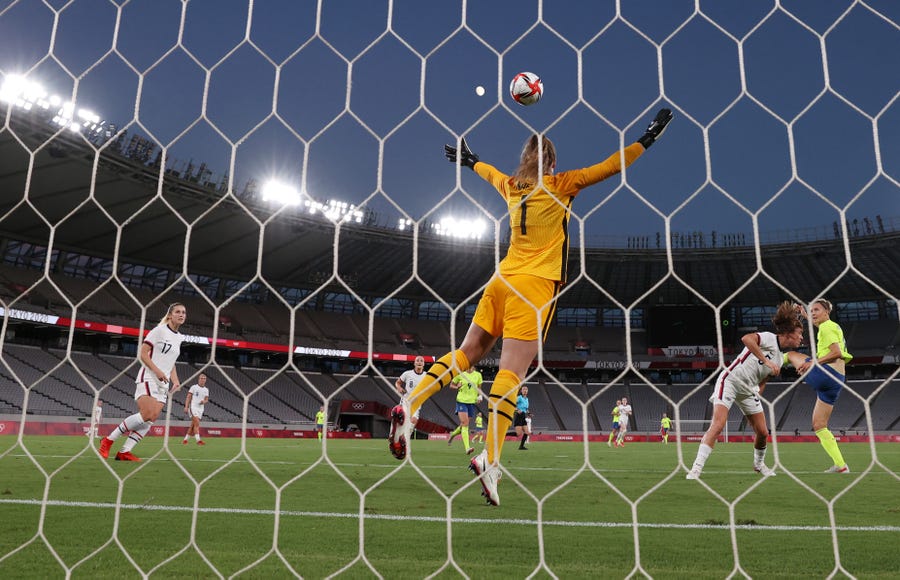 | | Lina Hurtig #8 of Team Sweden scores their side's third goal past Alyssa Naeher #1 of Team United States during the Women's First Round Group G match between Sweden and United States during the Tokyo 2020 Olympic Games at Tokyo Stadium on July 21, 2021 in Chofu, Tokyo, Japan. | | Dan Mullan, Getty Images | |
What everyone's talking about |
| |
Infrastructure bill blocked |
| Senate Republicans on Wednesday blocked the start of formal debate on bipartisan infrastructure legislation, a core part of President Joe Biden's economic plan, because the bill text and cost weren't available as negotiations continue. The 51-49 vote against beginning debate, which needed to clear a 60-vote threshold to succeed, came after a series of late-night negotiations. Senate Majority Leader Chuck Schumer, D-N.Y., changed his vote to help defeat the measure so that he could be on the prevailing side to call it up again for another vote in the future. Senators continue to haggle over details on transit and how to pay for the package. But senators from both parties called the setback temporary, with another vote expected as soon as Monday. |
| |
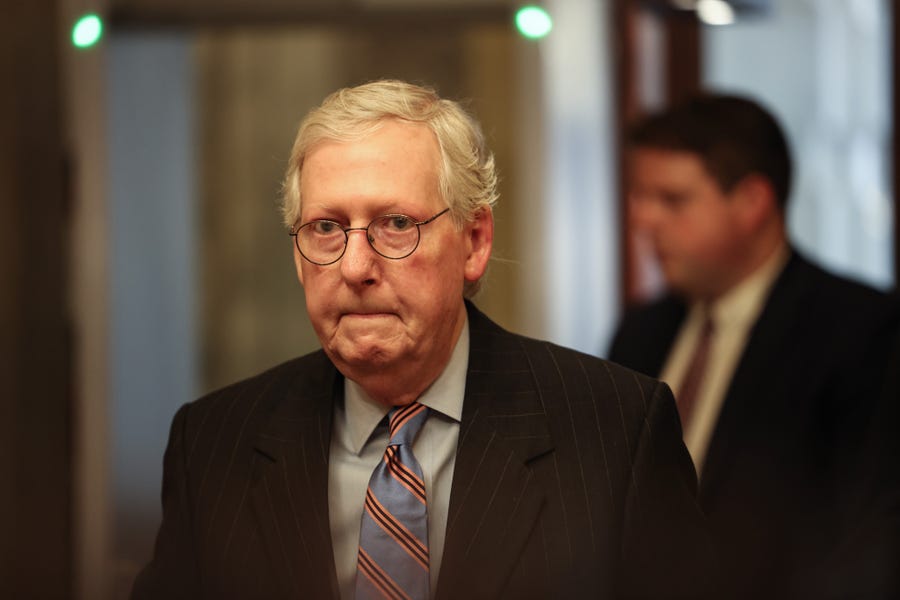 | | Senate Minority Leader Mitch McConnell, R-Ky., arrives at the U.S. Capitol on July 21, 2021 in Washington, D.C. The Senate is expected to vote on whether to begin debating the bipartisan infrastructure bill, a vote McConnell said is "set to fail." | | Anna Moneymaker, Getty Images | |
Smoke from wildfires seen across the country |
| The sun glowed red-orange as haze clouded parts of New York City for a second day Wednesday, as the effects of Western wildfires were felt across the country. Washington, Baltimore, Philadelphia and Boston all saw similarly smoky conditions this week, prompting air quality alerts in much of the region. The Bootleg Fire in Oregon was by far the largest, burning more than 540 square miles about 300 miles southeast of Portland in and around the Fremont-Winema National Forest. In all, 83 wildfires are burning across 13 states, most of them in the Western U.S., the National Interagency Fire Center said Tuesday, covering nearly 1.3 million acres of land. The smoke has traveled more than 2,700 miles to reach New York City. |
| |
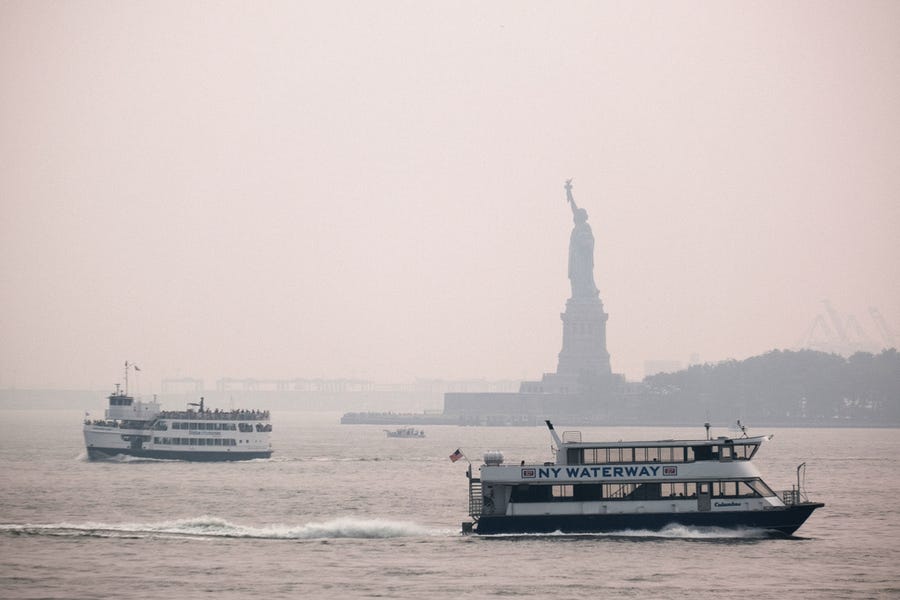 | | The Statue of Liberty sits behind a cloud of haze on July 20, 2021 in New York City. According to data from the National Oceanic and Atmospheric Administration, wildfire smoke from the west has arrived in the tri-state area creating decreased visibility and a yellowish haze in many areas. | | Spencer Platt, Getty Images | |
Real quick |
| |
Borders stay closed another month |
| As new COVID-19 infections rise in every state, the U.S. has yet again extended border restrictions on nonessential travel. U.S. borders with Mexico and Canada will remain closed through Aug. 21, according to documents to be published in the Federal Register. The previous U.S. border restrictions were set to end on Thursday. The extensions come on the heels of Canada's Monday announcement that it would reopen its borders to fully vaccinated U.S. citizens and permanent residents Aug. 9, with plans to allow fully vaccinated travelers from any country on Sept. 7. |
| |
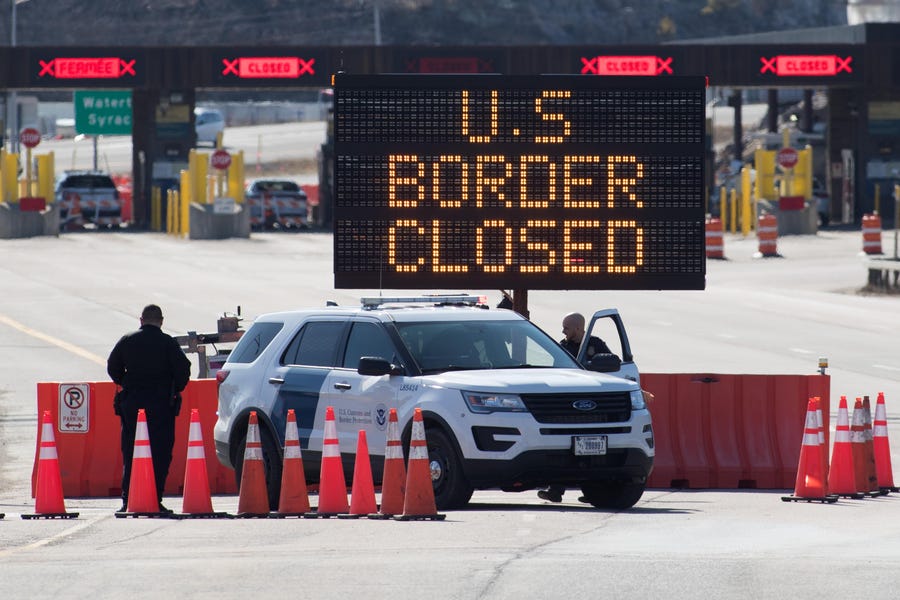 | | U.S. Customs officers stand beside a sign saying that the U.S. border is closed at the U.S./Canada border in Lansdowne, Ontario, on March 22, 2020. | | LARS HAGBERG, AFP via Getty Images | |
A break from the news |
| |
| This is a compilation of stories from across the USA TODAY Network. Want this news roundup in your inbox every night? Sign up for The Short List newsletter here. |
| |
| MORE ARTICLES |
| |
| |
| |
No comments:
Post a Comment